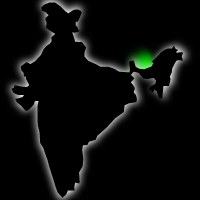  |  |
|
  |  |
|
 The Kingdom of Bhutan and India have traditionally enjoyed close cultural and friendly relationships. The economy of Bhutan is closely aligned with India. The 1949 India Bhutan treaty forms the basis for a free trade regime between the two countries. Leaders of both countries have been meeting regularly and exchanging views on bilateral cooperation. A large number of Bhutanese study and seek employment in India. Besides this, India also encourages cultural exchange programmes between Indians and Bhutanese. Indians in Bhutan have been engaged in trade, commerce, teaching, consultancy and administration. The Kingdom of Bhutan and India have traditionally enjoyed close cultural and friendly relationships. The economy of Bhutan is closely aligned with India. The 1949 India Bhutan treaty forms the basis for a free trade regime between the two countries. Leaders of both countries have been meeting regularly and exchanging views on bilateral cooperation. A large number of Bhutanese study and seek employment in India. Besides this, India also encourages cultural exchange programmes between Indians and Bhutanese. Indians in Bhutan have been engaged in trade, commerce, teaching, consultancy and administration.
Many of the Bhutanese converted to Buddhism in 8th Century AD under the famous Buddhist teacher and tantrik Padmasambhava. Under his influence, Buddhism spread to parts of India and to Bhutan. Although Buddhism does not prevail much in India, Bhutan to date is predominantly a Buddhist country. Buddhist festivals in Bhutan are marked with lot of colour and gaiety as much as in India. More than 70% of Bhutan exports as well as imports are with India. India primarily exports petroleum products, automobiles, rice and machinery to Bhutan, while importing electricity, cement, raw silk and fruit products from Bhutan. |
| About India | Arts | Cuisine | Fairs | Festivals | Neighbours | Society | Religions |
| Site Map | Disclaimer | About Us | Write To Us |